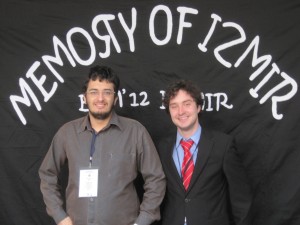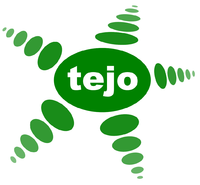Esperanto has been around for a while now and almost everyone who is in any way connected with learning languages (including a large part of AEGEE) has at least heard of it. However, if you haven’t, don’t feel down and just keep reading.
As our world is becoming more and more global with every day, English is taking over. It is literally taking over, like an invader and often changing languages, diminishing their native character. Wouldn’t it be nice to have a common second language for everyone? One that wouldn’t change the native language of any group? In order to consider Esperanto for this position, let’s take a deeper look into what it is and how it came about.
The main ideas of Esperanto perfectly fit the criteria of a universal second language. It is neutral and puts all speakers on the same level. By making everyone equal, Esperanto helps reach true internationalism. Moreover, it is easy to learn thanks to its basic pronunciation, minimalist grammar and a small vocabulary together with simple word-formation. Just to take an example, the 15,000-20,000 roots of the language can create hundreds of thousands of words. In addition, it can be mastered within 3 months. Sounds too good to be true?
Not everything is so perfect about it. The basis of this language was created synthetically by Dr. Lejzer Ludwik Zamenhof and presented to the public in 1887. However, just as any natural language, Esperanto has evolved over time and is now present in literature, music and the global web. Moreover, it is even the native language of about 1000 people. Nevertheless, many argue that this is not a living language. The counterarguments to this point can be found in the form of books, songs, movies, internet sites and many Esperanto gatherings throughout the year all over the world. The biggest question remains in the sphere of implementation. Introducing a new second language would require huge costs not only for the translation of many documents, but also for the need to develop the language even further in order to create a set of new terminology that will become universally accepted. Quite a feat for sure!
 AEGEE has not stood apart from this issue. It has been floating about for quite some time. From the list Esperanto-L of 2007, through the workshops at the Agora 2008 and the European days of languages in Aachen, all the way up to the present workshops at the EBM-Izmir. For a group of the AEGEEans this summer was also spent under the influence of Esperanto. The participants of the Summer University in AEGEE-Skopje with the theme of multilingualism got to take part in two introductory courses to Esperanto. However, it was the EBM in Izmir that inspired the creation of this article.
AEGEE has not stood apart from this issue. It has been floating about for quite some time. From the list Esperanto-L of 2007, through the workshops at the Agora 2008 and the European days of languages in Aachen, all the way up to the present workshops at the EBM-Izmir. For a group of the AEGEEans this summer was also spent under the influence of Esperanto. The participants of the Summer University in AEGEE-Skopje with the theme of multilingualism got to take part in two introductory courses to Esperanto. However, it was the EBM in Izmir that inspired the creation of this article.
Being present at the workshop at the EBM in Izmir, I must say that the question of language policy rose quite a debate among the participants. French is still one of the official languages of AEGEE and many see it as unneeded. Even substituting it with Esperanto was discussed. Many ideas were thrown back and forth and everyone did one’s best to keep an open mind. Thanks to the speakers, Nico Huurman and Michael Boris Mandirola, the heated arguments ended in a peaceful performance of the text in Esperanto for the European anthem Ode to Joy. However, the topic keeps coming back months after the EBM is already over.
 Nowadays Esperanto has many organisations supporting it. Apart from the direct UEA (Universal Esperanto Association) and TEJO (Tutmonda Esperantista Junulara Organizo, otherwise known as the World Esperanto Youth Organisation) such organisations as UNESCO, United Nations, UNICEF and the Council of Europe have also declared their recognition of Esperanto in some form. Is AEGEE ready to join these ranks?
Nowadays Esperanto has many organisations supporting it. Apart from the direct UEA (Universal Esperanto Association) and TEJO (Tutmonda Esperantista Junulara Organizo, otherwise known as the World Esperanto Youth Organisation) such organisations as UNESCO, United Nations, UNICEF and the Council of Europe have also declared their recognition of Esperanto in some form. Is AEGEE ready to join these ranks?
As any issue, there are many sides to this one as well. Over more than 100 years, Esperanto has certainly evolved greatly and improved its place in the modern society. Whether you believe it is of any use for the future or not, one can’t but agree that this is definitely a phenomenon to know and keep an eye out for.
If you would like to know more about Esperanto, here are some useful sites to take a look at:
– http://www.esperanto.net (information about Esperanto)
– http://lernu.net (learning Esperanto)
Written by Olga Volovyk, AEGEE-Kyiv

